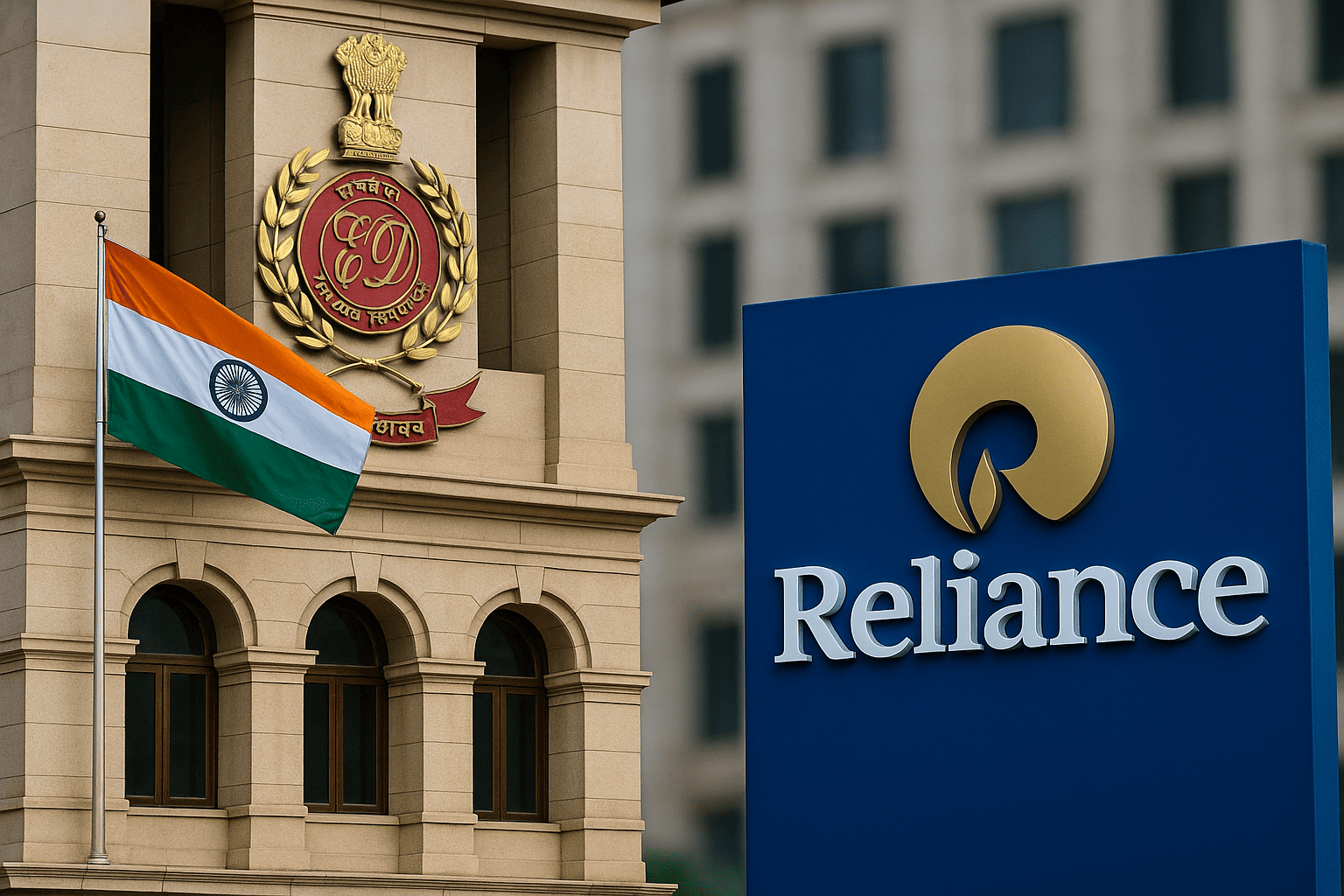India Freezes Anil Ambani Group Assets Tied to Yes Bank Probe
By Tredu.com • 11/3/2025
Tredu

What happened, and the scale of the freeze
India’s financial crime agency attached assets valued at ₹3,084 crore, about $350.9 million, tied to companies within the Reliance Anil Ambani Group as part of a money-laundering probe linked to financing by Yes Bank in 2017–2019. The seizure list includes residential units and land in Mumbai, Delhi, and Chennai, along with other holdings, according to reporting that cites officials familiar with the action. The move follows a series of inquiries into credit lines that allegedly generated no returns and were routed to group-linked entities through opaque structures.
How this fits the Yes Bank investigations
Investigators have examined loans and investments exceeding ₹47 billion, around $569 million, that Yes Bank extended to Ambani-linked firms during the period before the lender’s well known rescue. Authorities allege that a portion of those funds was diverted using shell companies and capital markets instruments, then recycled via related parties. The Enforcement Directorate says improprieties involved weak documentation, borrower profiles that did not justify exposure, and misuse of proceeds. The attachment aims to preserve asset value while courts weigh the facts.
Which entities and assets are in focus
Cases cluster around Reliance Home Finance and Reliance Commercial Finance, with references to transactions that regulators say lacked economic purpose. Properties linked to the group, including Anil Ambani’s family home, are among the provisionally attached assets. Separately, earlier probes have scrutinized borrowings and cash flows in parts of the former telecom arm and other affiliates, a backdrop that has kept the group under sustained scrutiny.
What the companies say
Representatives for the Reliance Anil Ambani Group have previously denied wrongdoing and said the firms will cooperate with authorities. Where charges have been filed in related cases, group companies have noted that ongoing proceedings do not affect day-to-day operations or governance at listed affiliates that are no longer under Anil Ambani’s management. In this matter, the attachment is provisional, subject to judicial review, and does not imply guilt.
Legal mechanics of an attachment
Under India’s anti-money-laundering law, the Enforcement Directorate can provisionally attach properties that it believes are proceeds of crime. The order is registered with an adjudicating authority, which must confirm the attachment within a statutory timeline. If confirmed, the properties remain frozen pending trial. Defendants can contest valuation, traceability, and ownership. Courts may also allow limited use of assets for essential payments while preserving recoverability for the state.
Investor lens: governance and liquidity
For investors, the immediate questions are control, liquidity, and cross-default risk. The attachment does not transfer ownership; it restricts transfer or encumbrance while proceedings run. If the frozen block includes promoter holdings, float dynamics and borrowing against shares can be affected, which sometimes amplifies price swings. Lenders and rating agencies typically reassess collateral coverage and covenants when promoter assets are tied up in legal processes. The broader impact depends on which securities are encumbered and whether courts place limits on voting or sale.
Context: a longer enforcement arc
Yes Bank exposures to several corporate groups have generated overlapping investigations by the Enforcement Directorate and the Central Bureau of Investigation since 2020. Prior Reuters coverage detailed chargesheets that cite alleged quid pro quo between former bank executives and borrowing entities, and describe round-tripping of funds. The current attachment escalates pressure on the Reliance Anil Ambani Group, while parallel cases move toward adjudication.
What happens next
Expect court filings that test the link between the identified properties and the alleged laundering trail. The adjudicating authority’s confirmation, or rejection, will set the near-term path. If confirmed, prosecutors can pursue confiscation after trial. If courts find the traceability inadequate, they can lift the attachment. In the meantime, any attempt to sell or pledge the frozen assets would require permission. Parties may also seek settlements on tax or regulatory angles that intersect with the criminal cases.
Why it matters beyond one group
Attachments of this size send a message about enforcement intensity and documentation standards in India’s credit markets. Banks, mutual funds, and rating agencies have tightened diligence on related-party transactions, connected lending, and use-of-proceeds certifications. For borrowers, that means more covenants and monitoring. For investors, transparency on promoter leverage, contingent liabilities, and cross-holdings remains central to risk pricing. The case will be tracked for signals on the speed and coordination of enforcement across agencies.
Bottom line
Authorities attached about $351 million of properties tied to the Reliance Anil Ambani Group in a Yes Bank investigation, a move meant to secure assets while courts assess alleged diversion of funds. The episode will shape governance perceptions and credit scrutiny until the legal process runs its course.

How to Trade Like a Pro
Unlock the secrets of professional trading with our comprehensive guide. Discover proven strategies, risk management techniques, and market insights that will help you navigate the financial markets confidently and successfully.


